I’m only 49, but I’m 49 and I’m now a widow,” Jeni Pim says quietly. “There’s days I still sit on the edge of the bed and go: ‘Did that actually happen?’ I still feel that.”
Little wonder that it still feels surreal. When Jeni’s husband Nigel (50) was admitted to hospital with COVID-19 on 31 December 2020, everybody expected the young, active father-of-two to make a full recovery.
Indeed, when the phone rang on the morning of 14 January 2021, Jeni answered it expecting to hear that a procedure to aid Nigel’s recovery was going ahead.
“And then she said: ‘No, I’m very sorry,’” she repeats the words that changed everything, “he died.”
And in that moment, Jeni not only lost her soulmate, she lost her old self too.
“We were completely and utterly intertwined and I feel like I’ve lost more than an arm and a leg. I feel like I’m two people now: one that everybody thinks is fine and that’s getting back on her feet again and the other that’s so broken inside that I don’t recognise myself. And that’s just being brutally honest,” she says.
“It’s not about death, it’s about the dreams you had and they just disintegrated. You’re almost looking at the world through different glasses to everybody else.”
Soulmates
Jeni is sharing her story to help highlight the issues faced by those who are grieving; from the deeply personal to the practical. But in as much as this is a story about loss, it is equally about love.
Jeni was just 16 when she first set eyes on Nigel at a youth weekend in Avoca, Co Wicklow, where he was helping out in the kitchen.
“He had been playing rugby all summer and he was blonde and he was tall and he was tanned and he had this really big, deep voice and he was just so good helping his mom in the kitchen,” she smiles. “And I think I fell in love with him straight away.”
So, who made the first move? “Definitely him,” laughs Jeni, who says that their first “official” date was to see Driving Miss Daisy at the cinema in Rathgar.
After college, the couple moved to Cork, before later relocating to Fenor, Co Waterford, to live on part of Nigel’s brother Andrew’s farm. They also set up their own accounting and payroll software business, but Jeni emphasises that for Nigel, family always came first after the arrival of their children, Robert (now 24) and Jordan (20).
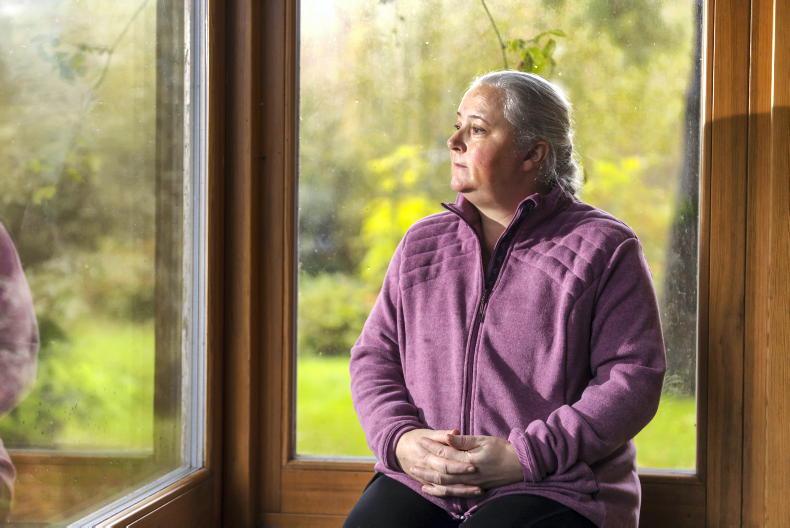
\ Patrick Browne
“We were able to get to all their school plays, all of their training and that was core to Nigel’s work ethic,” she says. “That’s what the kids remember, which is great.”
In 2015, with Nigel’s unwavering support, Jeni fulfilled an ambition to study at Ballymaloe Cookery School, where she teaches today. Their long-term plan, however, was to start a little cookery school in the south of France once the kids were finished college.
“That was one of his big dreams,” says Jeni. “He loved cooking, he loved that people could have community with it.”
Community was important to Nigel, a Quaker. Reading tributes online after his death, a word that is repeated time after time is “generous”. A decade previously, he had donated a kidney to his father. He regularly gave blood and was a volunteer with Samaritans; indeed, that was how he spent what would be his last Christmas Eve.
That same spirit prevailed at home.
“Even when I started working in Ballymaloe and I was leaving at six in the morning, no matter what time he’d got to bed from work, he always made me a pot of tea in the morning,” smiles Jeni, who describes Nigel as her strength and support.
“He was always, for me, a voice of reason,” she says. “I’d come in after a bad day and I’d be ranting and raving and everything and he’d just put a cup of tea or a glass of wine in front of me and let me get all my words out… and he was so strong.”
COVID-19
Grief has wiped out many of Jeni’s memories of Christmas 2020, only that Nigel was extremely conscious of COVID-19 and in playing his part to protect others.
On Christmas Day and St Stephen’s Day, he felt tired, but displayed none of the known symptoms of the virus at the time. On 28 December, he got an antibiotic from the GP, but his health deteriorated over the next few days to the point where he was struggling to breathe and after going for a PCR test on New Year’s Eve, Nigel was admitted to hospital.
“I thought they might put him on oxygen for a while, but he went downhill really, really fast,” says Jeni. Yet even after Nigel was put on a ventilator, she held on to the hope that he would recover.
On 27 December, we had put a mattress down on the floor of the bedroom because I just felt in case it was COVID, I didn’t mind sleeping in the same room, but I felt sleeping in the same bed probably wasn’t ideal. So when he went into hospital, I just stayed on the mattress on the floor because in my head I was like: ‘I’m not getting back into the bed until he’s home,’” says Jeni, her eyes filling with tears.
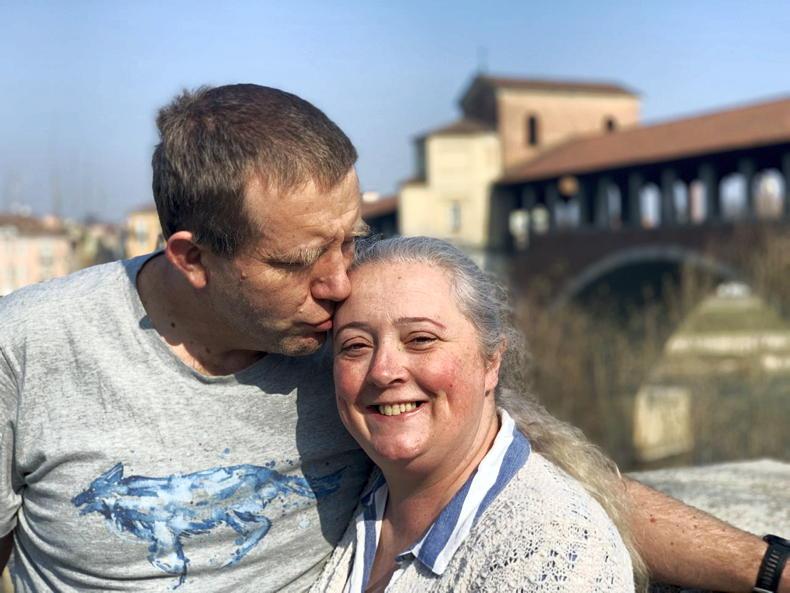
Jeni Pim, pictured in happier times with her late husband Nigel
Nigel did appear to rally. There was talk of a proceedure that might help to aid his recovery, and Jeni had been able to visit in full PPE (she credits the “incredible” care and support from the hospital staff).
When the phone rang on the morning of 14 January, however, it was with the worst news imaginable: Nigel was brain dead. The details of the final goodbye before the ventilator was switched off are simply heart-rending.
“I just lay across his chest until he stopped breathing,” says Jeni. “It was the only thing I could do.”
Living after loss
The loss was further compounded by COVID-19 restrictions around the funeral and the fact that Jeni was very quickly plunged into what is known as “death admin”. This included everything from applying for a death certificate to the widow’s pension, which proved a particularly cruel experience.
“The first lady I got said: ‘Oh is it for your mum or dad?’ and I said, ‘No actually, it’s for myself’ and she said, ‘You know you’re not supposed to make crank calls’. And I said, ‘I’m not making crank calls, my husband died’. You have no idea,” says Jeni, who also found dealing with financial and other institutions over issues such as their joint account and credit card extremely frustrating, leaving her in a vulnerable position; especially as both of their children were in third-level education when Nigel died.
Practical challenges aside, there is the deeply personal struggle of facing a future without Nigel in it.
“I tend to just try and focus on the day to day or even a week or two in advance, but even the thoughts of going on holiday… I still can’t think about anything like that,” says Jeni.
“It hurts so much to live after someone dies. Everything hurts. You look at something and you think, ‘Oh I wish he was here to see it’ and it doesn’t mean the same anymore. And it only emphasises how lonely you are.”
Jeni credits Robert and Jordan, and their family and friends for their support since Nigel died, but says that more generally, while “we think we’re great with grief” in Ireland due to our funeral traditions, there is much more support needed in the aftermath of loss.
“So many people say, ‘If there’s anything I can do for you, let me know’. And they mean it, absolutely genuinely. But what people who are grieving need is they need you to actually say: ‘OK, I know you can’t ask me for this, but I’m going to go shopping for you next week or I’m just going to sit outside if you want to come and talk to me,’” explains Jeni.
“I think for me, if somebody said, ‘What can I do for you?’ I’d say, ‘Be there for my children’. I’ve had close people to me who still haven’t spoken about Nigel to me or the kids and I just want them to bring one of the kids for a coffee and say: ‘Well, let me tell you about the time your dad did this’. And so many people can do that, which is amazing, and I think if more people do it, it would really help.”
One thing that does bring Jeni comfort is seeing Robert and Jordan “fulfilling their dreams”. Robert recently completed his master’s in conservation and biodiversity in Sweden, while Jordan is a third-year medical student at UCD. She is looking forward to bringing Jordan to a rugby match in Dublin, as that was Nigel’s passion, while she had a huge lump in her throat when Robert recently completed his first ultramarathon.
“Nigel would have given anything to have been there,” she says.
Her hope in sharing her journey is that it might help other people who are grieving. Her advice is to “take your time, be kind to yourself and don’t worry about what anybody else thinks”.
“Just get a pen and paper and write down what you want to do, what you need to do and work through it. Find somebody that you can talk to like a friend or family member, but I think it’s important to be really kind to yourself,” she says.
“From being in grief, I am more open to seeing everybody else’s grief in their lives, if that makes sense? And I think we could all be a little bit kinder.”
Read more
Meet the woman who has made death her life purpose
Rise: a love that will last a lifetime
I’m only 49, but I’m 49 and I’m now a widow,” Jeni Pim says quietly. “There’s days I still sit on the edge of the bed and go: ‘Did that actually happen?’ I still feel that.”
Little wonder that it still feels surreal. When Jeni’s husband Nigel (50) was admitted to hospital with COVID-19 on 31 December 2020, everybody expected the young, active father-of-two to make a full recovery.
Indeed, when the phone rang on the morning of 14 January 2021, Jeni answered it expecting to hear that a procedure to aid Nigel’s recovery was going ahead.
“And then she said: ‘No, I’m very sorry,’” she repeats the words that changed everything, “he died.”
And in that moment, Jeni not only lost her soulmate, she lost her old self too.
“We were completely and utterly intertwined and I feel like I’ve lost more than an arm and a leg. I feel like I’m two people now: one that everybody thinks is fine and that’s getting back on her feet again and the other that’s so broken inside that I don’t recognise myself. And that’s just being brutally honest,” she says.
“It’s not about death, it’s about the dreams you had and they just disintegrated. You’re almost looking at the world through different glasses to everybody else.”
Soulmates
Jeni is sharing her story to help highlight the issues faced by those who are grieving; from the deeply personal to the practical. But in as much as this is a story about loss, it is equally about love.
Jeni was just 16 when she first set eyes on Nigel at a youth weekend in Avoca, Co Wicklow, where he was helping out in the kitchen.
“He had been playing rugby all summer and he was blonde and he was tall and he was tanned and he had this really big, deep voice and he was just so good helping his mom in the kitchen,” she smiles. “And I think I fell in love with him straight away.”
So, who made the first move? “Definitely him,” laughs Jeni, who says that their first “official” date was to see Driving Miss Daisy at the cinema in Rathgar.
After college, the couple moved to Cork, before later relocating to Fenor, Co Waterford, to live on part of Nigel’s brother Andrew’s farm. They also set up their own accounting and payroll software business, but Jeni emphasises that for Nigel, family always came first after the arrival of their children, Robert (now 24) and Jordan (20).

\ Patrick Browne
“We were able to get to all their school plays, all of their training and that was core to Nigel’s work ethic,” she says. “That’s what the kids remember, which is great.”
In 2015, with Nigel’s unwavering support, Jeni fulfilled an ambition to study at Ballymaloe Cookery School, where she teaches today. Their long-term plan, however, was to start a little cookery school in the south of France once the kids were finished college.
“That was one of his big dreams,” says Jeni. “He loved cooking, he loved that people could have community with it.”
Community was important to Nigel, a Quaker. Reading tributes online after his death, a word that is repeated time after time is “generous”. A decade previously, he had donated a kidney to his father. He regularly gave blood and was a volunteer with Samaritans; indeed, that was how he spent what would be his last Christmas Eve.
That same spirit prevailed at home.
“Even when I started working in Ballymaloe and I was leaving at six in the morning, no matter what time he’d got to bed from work, he always made me a pot of tea in the morning,” smiles Jeni, who describes Nigel as her strength and support.
“He was always, for me, a voice of reason,” she says. “I’d come in after a bad day and I’d be ranting and raving and everything and he’d just put a cup of tea or a glass of wine in front of me and let me get all my words out… and he was so strong.”
COVID-19
Grief has wiped out many of Jeni’s memories of Christmas 2020, only that Nigel was extremely conscious of COVID-19 and in playing his part to protect others.
On Christmas Day and St Stephen’s Day, he felt tired, but displayed none of the known symptoms of the virus at the time. On 28 December, he got an antibiotic from the GP, but his health deteriorated over the next few days to the point where he was struggling to breathe and after going for a PCR test on New Year’s Eve, Nigel was admitted to hospital.
“I thought they might put him on oxygen for a while, but he went downhill really, really fast,” says Jeni. Yet even after Nigel was put on a ventilator, she held on to the hope that he would recover.
On 27 December, we had put a mattress down on the floor of the bedroom because I just felt in case it was COVID, I didn’t mind sleeping in the same room, but I felt sleeping in the same bed probably wasn’t ideal. So when he went into hospital, I just stayed on the mattress on the floor because in my head I was like: ‘I’m not getting back into the bed until he’s home,’” says Jeni, her eyes filling with tears.

Jeni Pim, pictured in happier times with her late husband Nigel
Nigel did appear to rally. There was talk of a proceedure that might help to aid his recovery, and Jeni had been able to visit in full PPE (she credits the “incredible” care and support from the hospital staff).
When the phone rang on the morning of 14 January, however, it was with the worst news imaginable: Nigel was brain dead. The details of the final goodbye before the ventilator was switched off are simply heart-rending.
“I just lay across his chest until he stopped breathing,” says Jeni. “It was the only thing I could do.”
Living after loss
The loss was further compounded by COVID-19 restrictions around the funeral and the fact that Jeni was very quickly plunged into what is known as “death admin”. This included everything from applying for a death certificate to the widow’s pension, which proved a particularly cruel experience.
“The first lady I got said: ‘Oh is it for your mum or dad?’ and I said, ‘No actually, it’s for myself’ and she said, ‘You know you’re not supposed to make crank calls’. And I said, ‘I’m not making crank calls, my husband died’. You have no idea,” says Jeni, who also found dealing with financial and other institutions over issues such as their joint account and credit card extremely frustrating, leaving her in a vulnerable position; especially as both of their children were in third-level education when Nigel died.
Practical challenges aside, there is the deeply personal struggle of facing a future without Nigel in it.
“I tend to just try and focus on the day to day or even a week or two in advance, but even the thoughts of going on holiday… I still can’t think about anything like that,” says Jeni.
“It hurts so much to live after someone dies. Everything hurts. You look at something and you think, ‘Oh I wish he was here to see it’ and it doesn’t mean the same anymore. And it only emphasises how lonely you are.”
Jeni credits Robert and Jordan, and their family and friends for their support since Nigel died, but says that more generally, while “we think we’re great with grief” in Ireland due to our funeral traditions, there is much more support needed in the aftermath of loss.
“So many people say, ‘If there’s anything I can do for you, let me know’. And they mean it, absolutely genuinely. But what people who are grieving need is they need you to actually say: ‘OK, I know you can’t ask me for this, but I’m going to go shopping for you next week or I’m just going to sit outside if you want to come and talk to me,’” explains Jeni.
“I think for me, if somebody said, ‘What can I do for you?’ I’d say, ‘Be there for my children’. I’ve had close people to me who still haven’t spoken about Nigel to me or the kids and I just want them to bring one of the kids for a coffee and say: ‘Well, let me tell you about the time your dad did this’. And so many people can do that, which is amazing, and I think if more people do it, it would really help.”
One thing that does bring Jeni comfort is seeing Robert and Jordan “fulfilling their dreams”. Robert recently completed his master’s in conservation and biodiversity in Sweden, while Jordan is a third-year medical student at UCD. She is looking forward to bringing Jordan to a rugby match in Dublin, as that was Nigel’s passion, while she had a huge lump in her throat when Robert recently completed his first ultramarathon.
“Nigel would have given anything to have been there,” she says.
Her hope in sharing her journey is that it might help other people who are grieving. Her advice is to “take your time, be kind to yourself and don’t worry about what anybody else thinks”.
“Just get a pen and paper and write down what you want to do, what you need to do and work through it. Find somebody that you can talk to like a friend or family member, but I think it’s important to be really kind to yourself,” she says.
“From being in grief, I am more open to seeing everybody else’s grief in their lives, if that makes sense? And I think we could all be a little bit kinder.”
Read more
Meet the woman who has made death her life purpose
Rise: a love that will last a lifetime






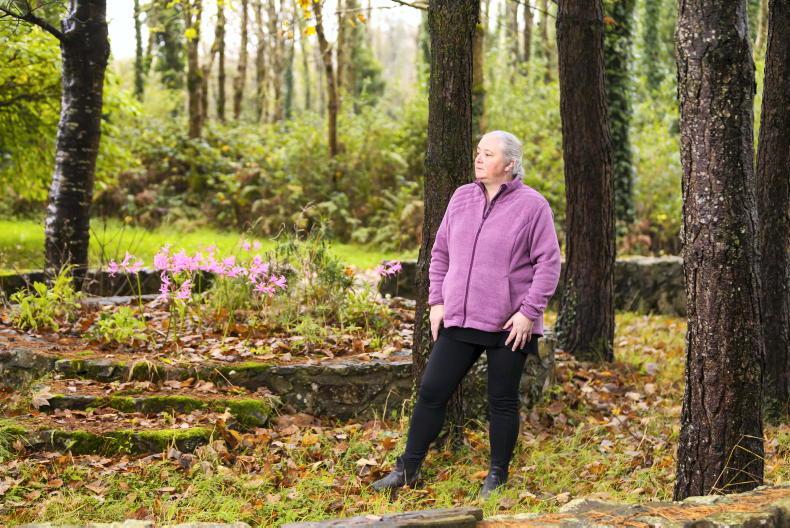
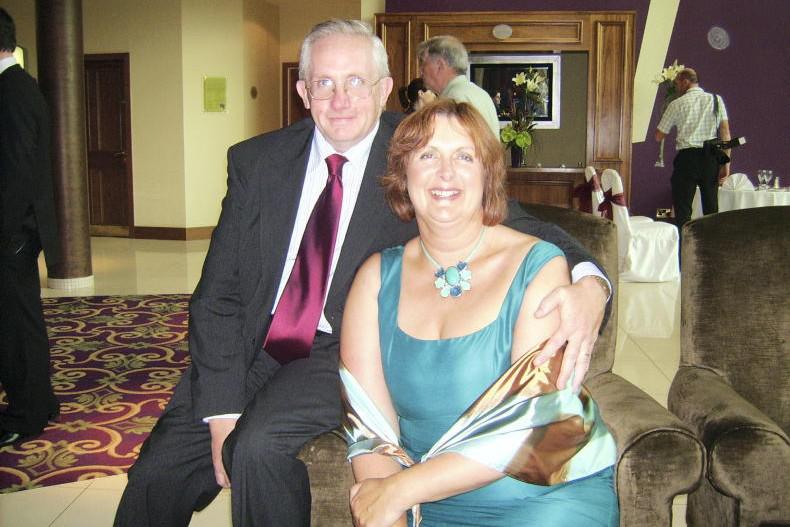

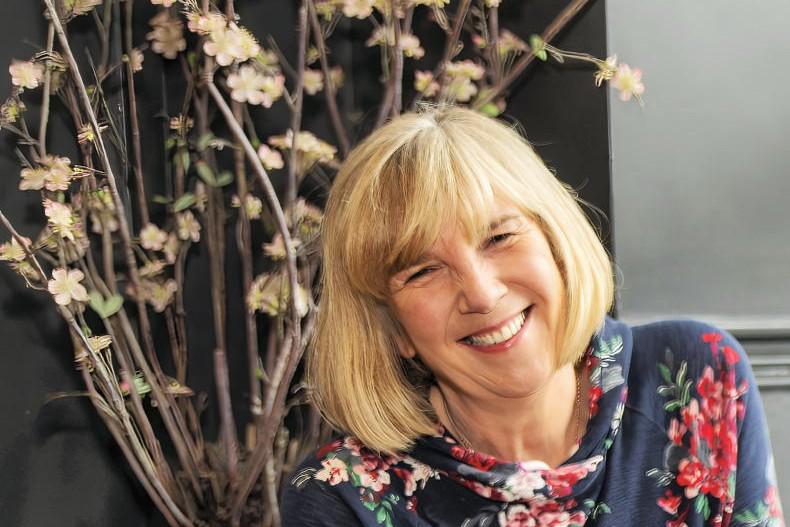
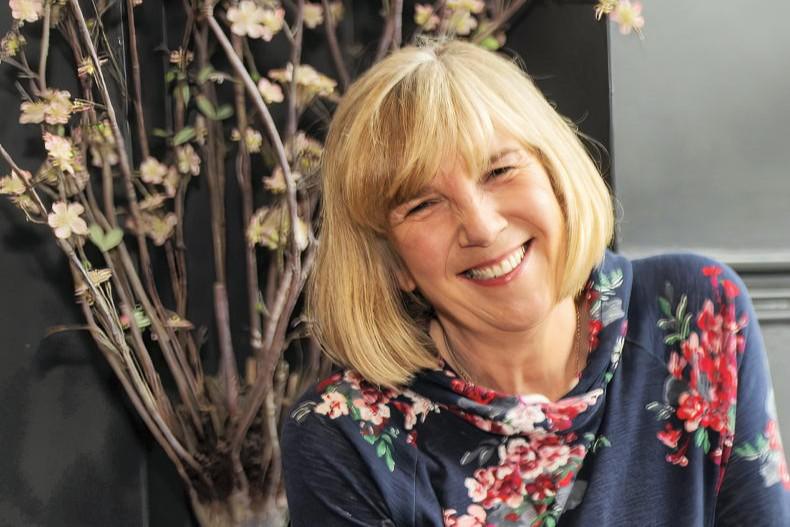
SHARING OPTIONS